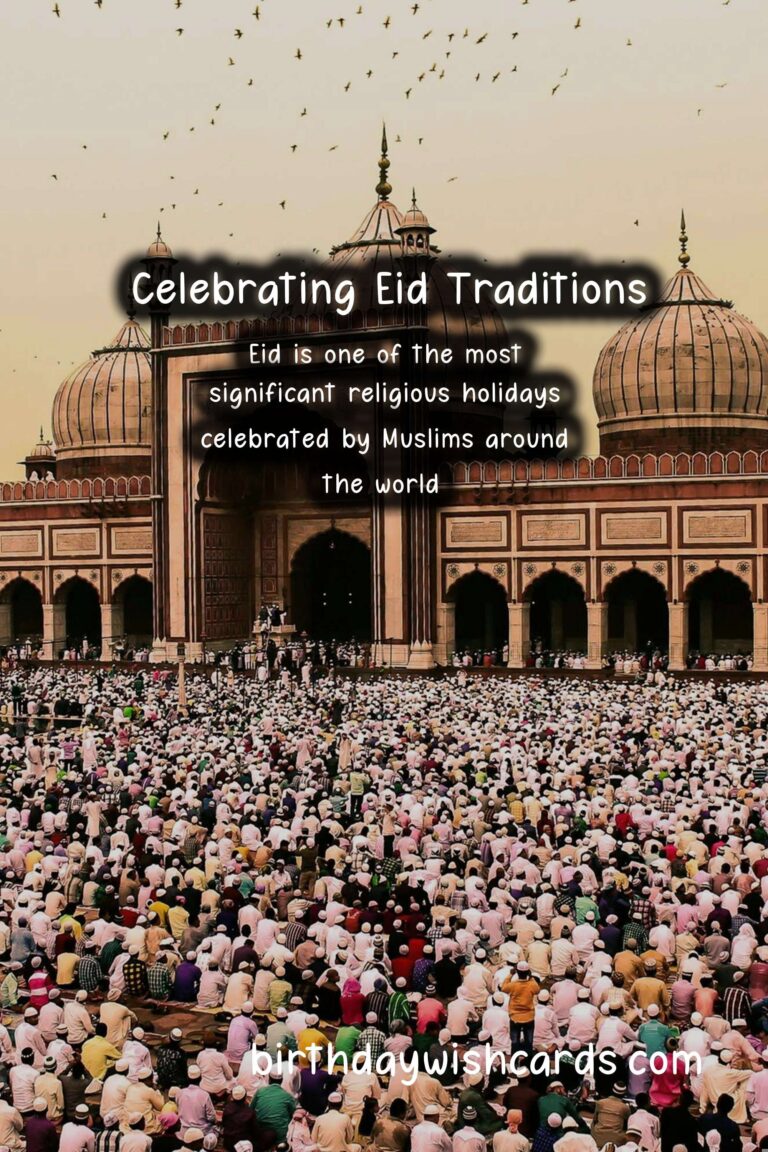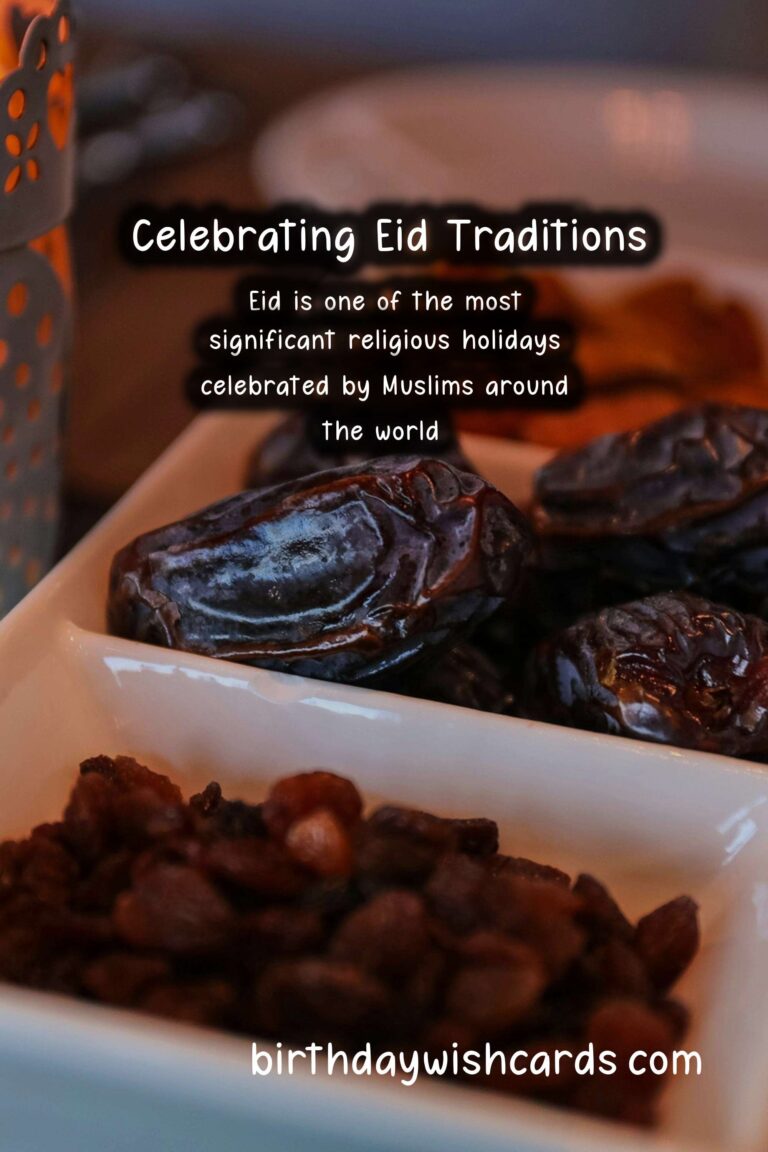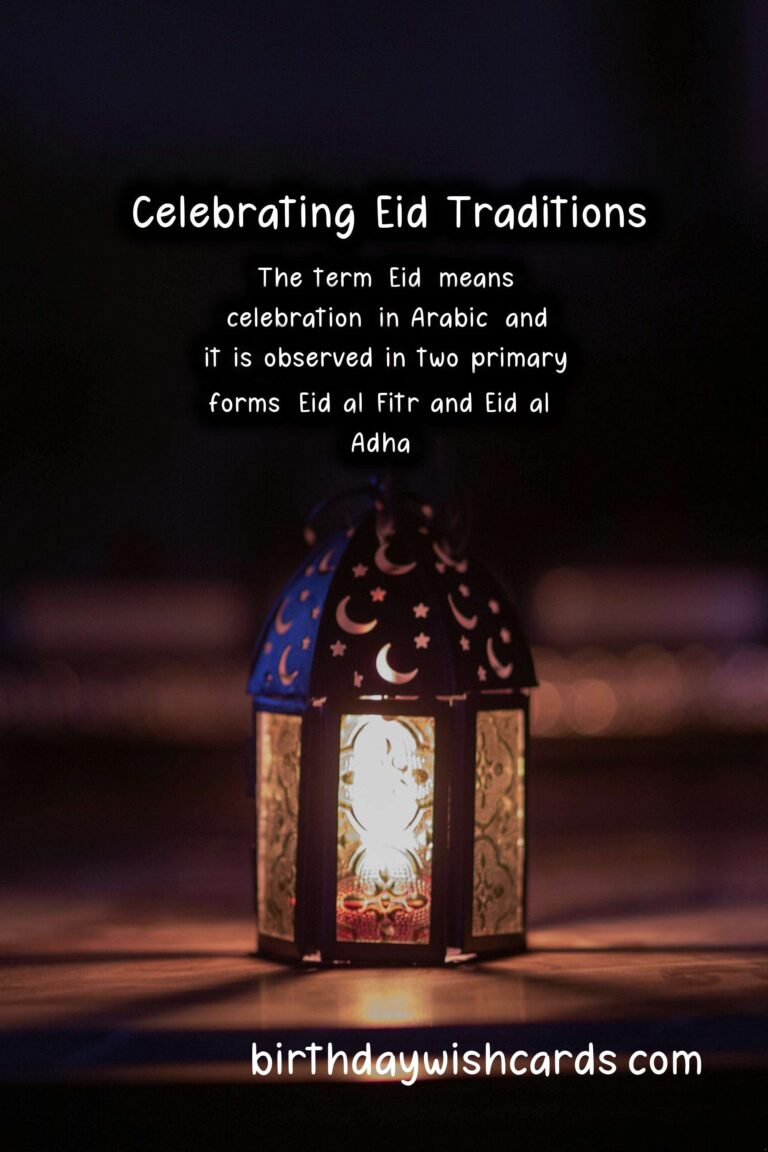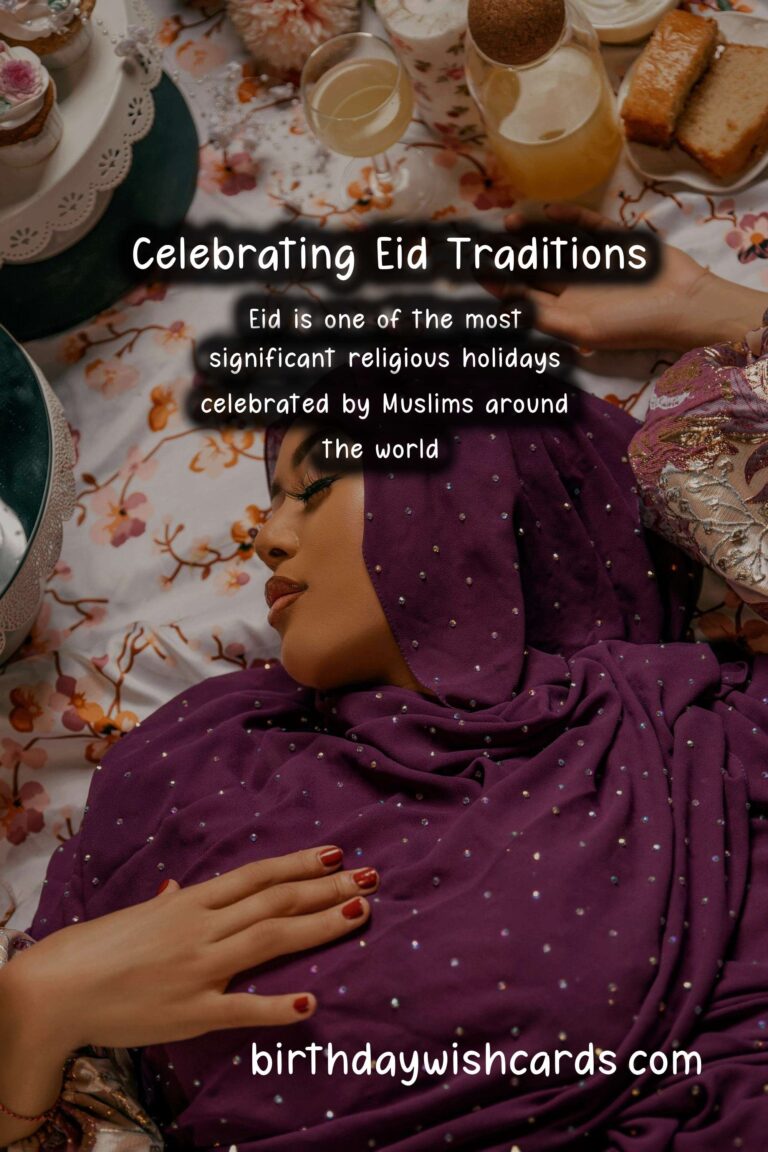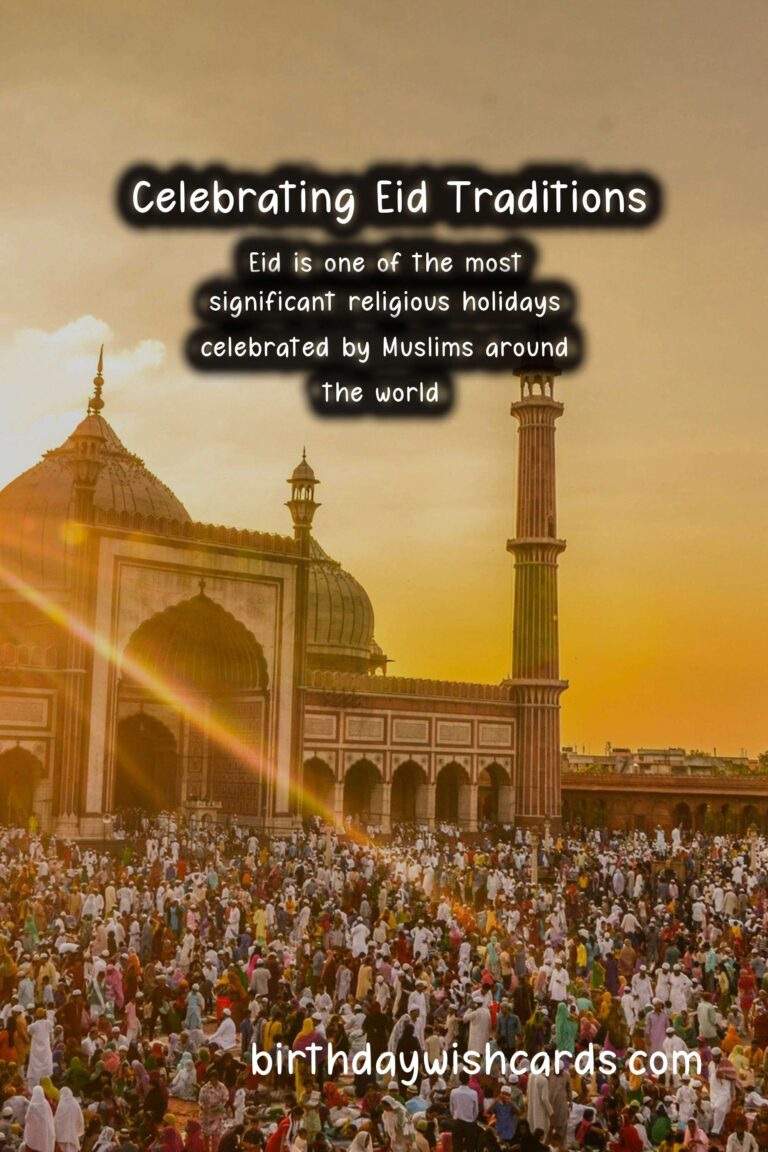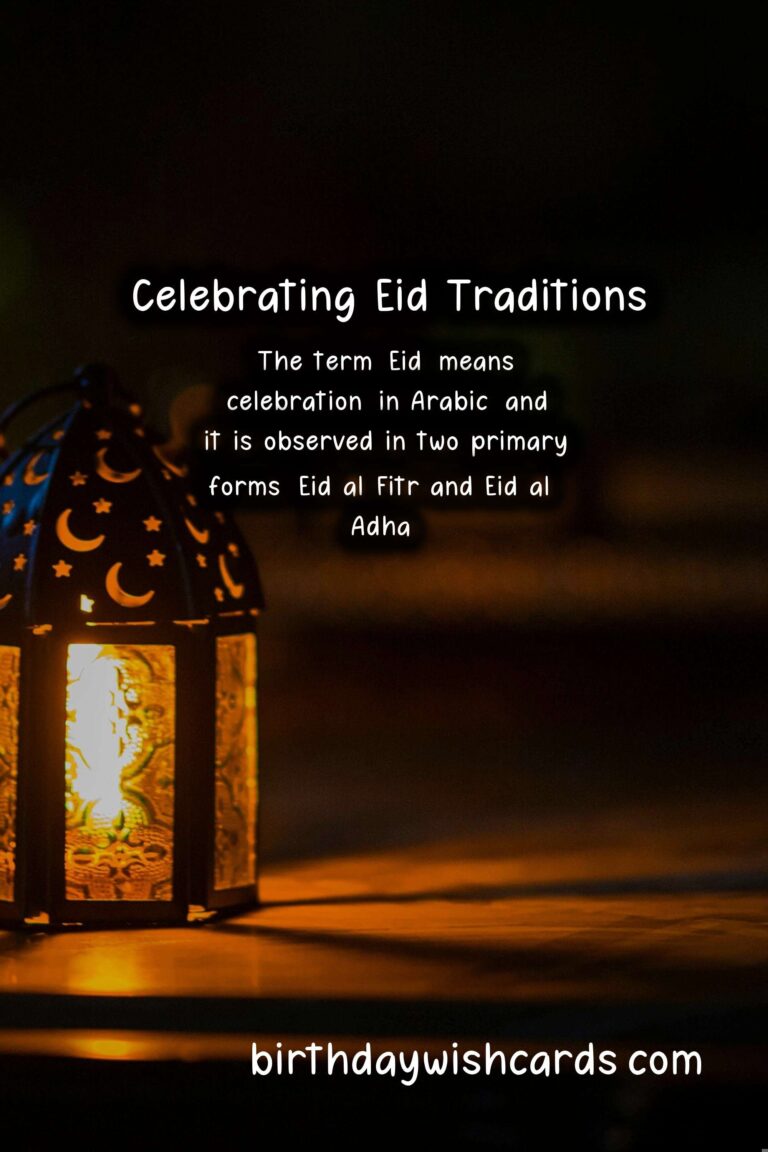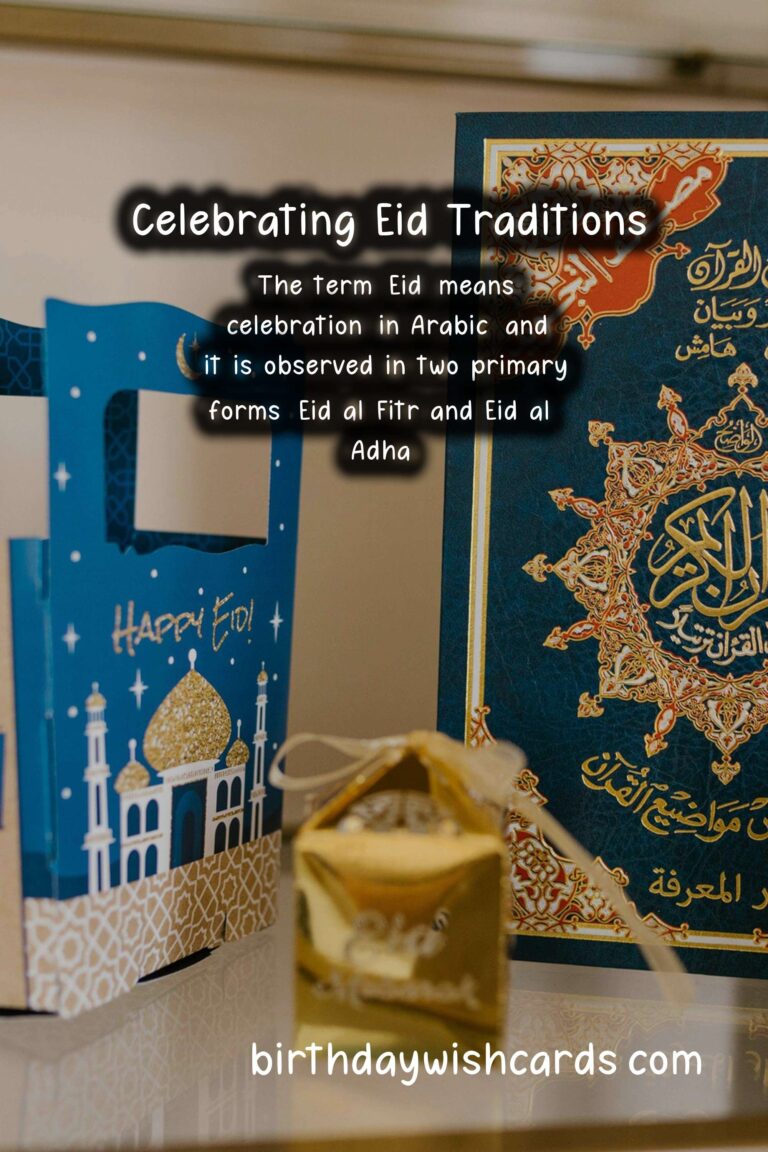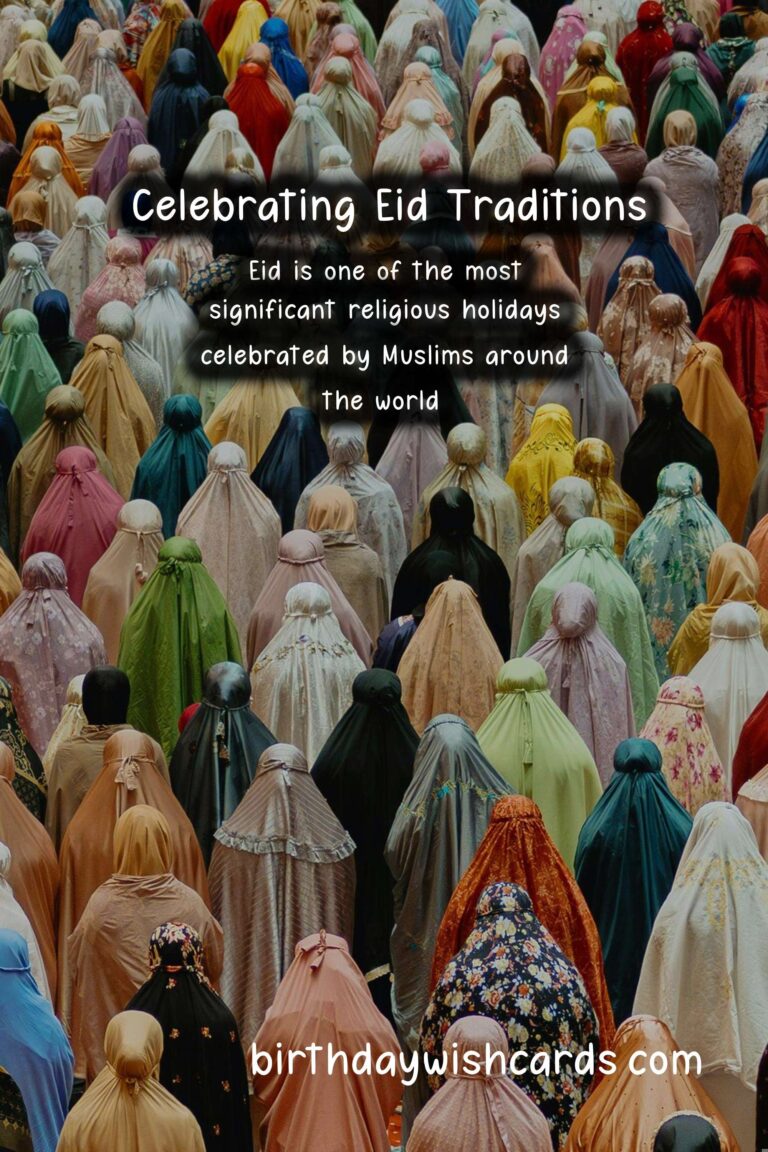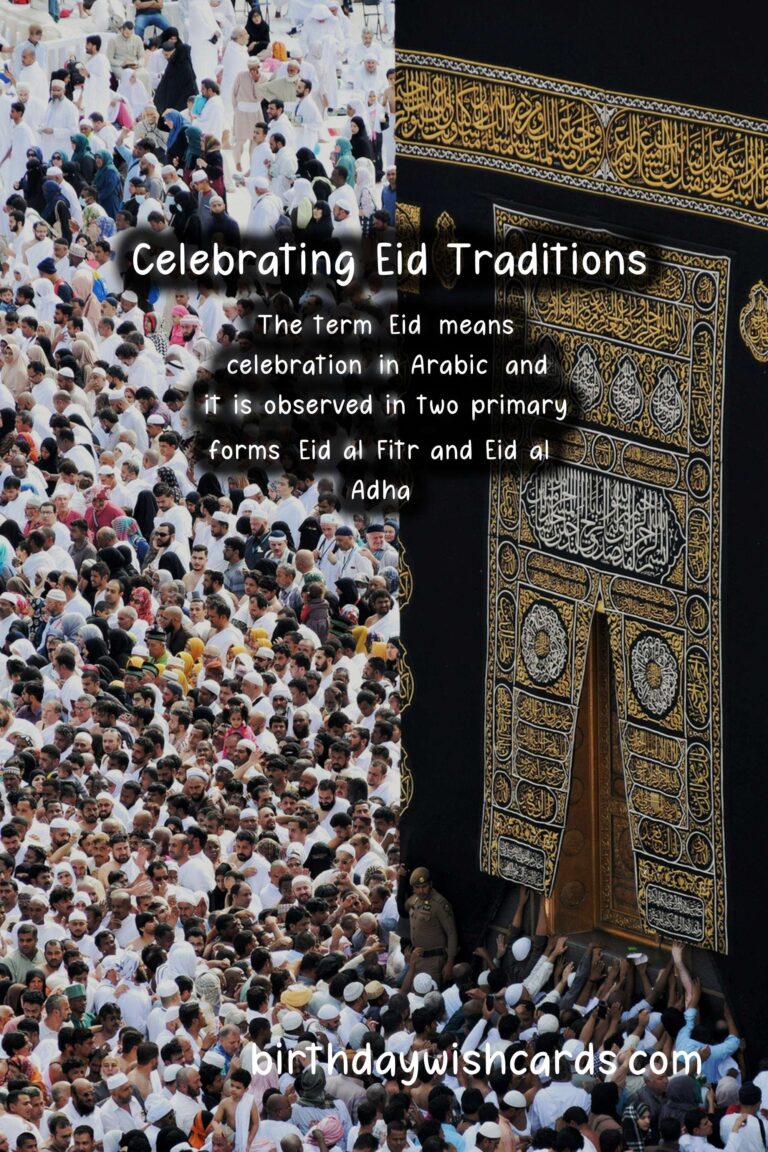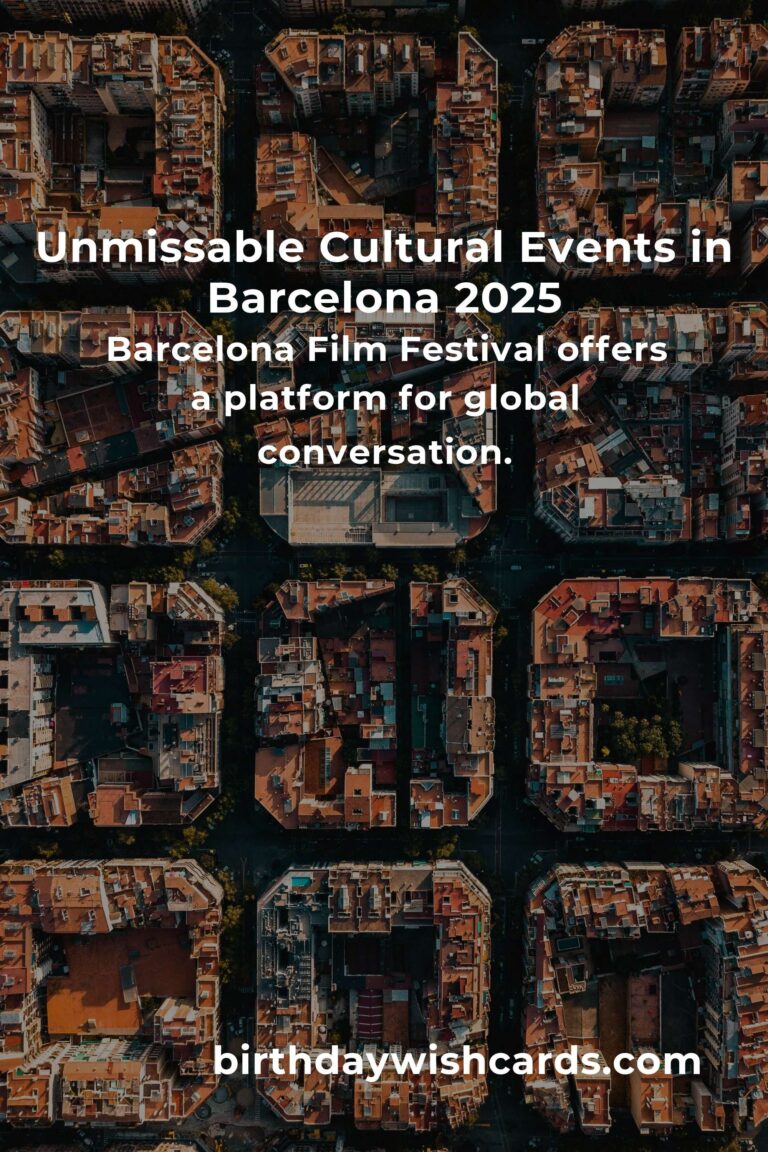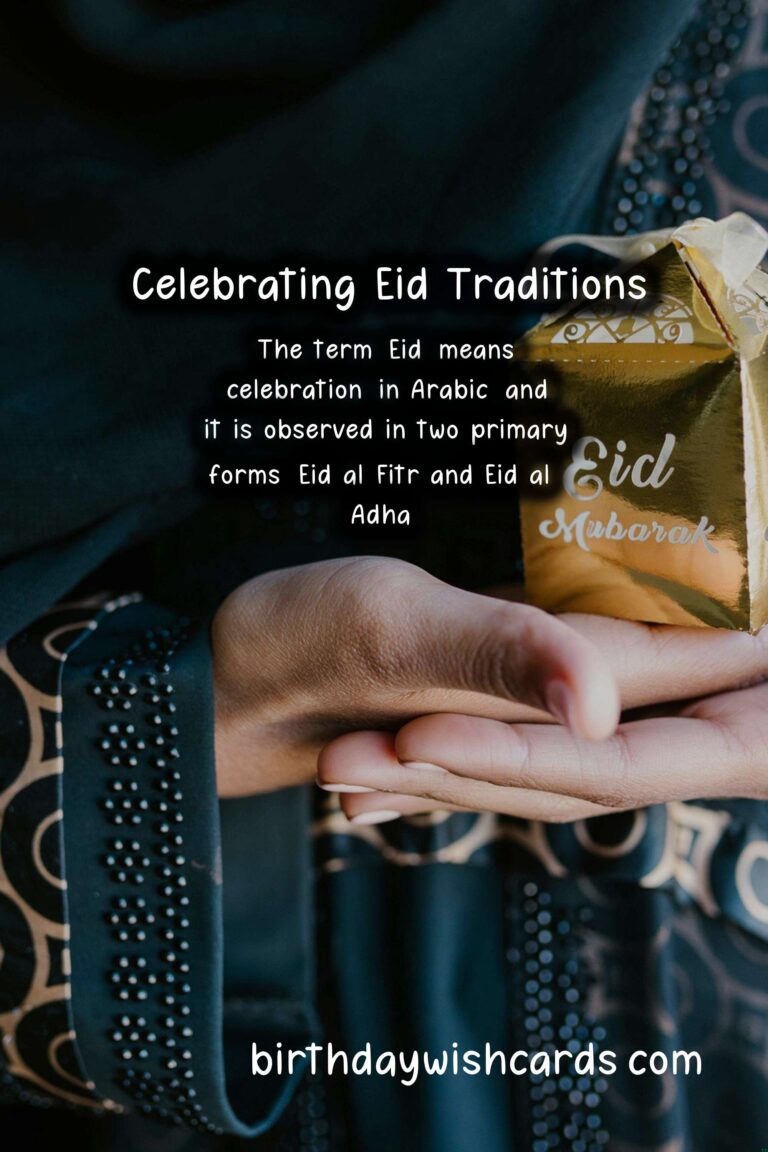
Eid is one of the most significant religious holidays celebrated by Muslims around the world. The term ‘Eid’ means ‘celebration’ in Arabic, and it is observed in two primary forms: Eid al-Fitr and Eid al-Adha. But what are the origins of these celebrations? In this article, we will explore the history behind Eid, its significance, and how it is celebrated across different cultures.
The Origins of Eid
The origins of Eid can be traced back over 1,400 years to the time of the Prophet Muhammad. Eid al-Fitr, meaning ‘Festival of Breaking the Fast’, was established after the conclusion of Ramadan, a month of fasting and spiritual reflection.
On the other hand, Eid al-Adha, known as the ‘Festival of Sacrifice’, honors the willingness of Prophet Ibrahim (Abraham) to sacrifice his son Isma’il (Ishmael) as an act of obedience to God. This event is commemorated every year by Muslims around the world.
Eid al-Fitr: The Celebration of Breaking the Fast
Eid al-Fitr is celebrated on the first day of the Islamic month of Shawwal. The holiday marks the end of Ramadan, a month of fasting, prayer, and reflection. It is a day of joy, gratitude, and charity.
During Ramadan, Muslims fast from dawn until sunset, refraining from food and drink to cultivate empathy for the less fortunate and deepen their spiritual connection. Eid al-Fitr serves as a reward for this self-discipline and devotion. Muslims begin their day by performing a special prayer at the mosque, followed by the giving of Zakat al-Fitr, a form of almsgiving meant to purify those who fast from any indecent act or speech.
Customs and Traditions of Eid al-Fitr
Across different cultures and countries, Eid al-Fitr is celebrated with various customs and traditions.
Prayer and Reflection
The day begins with a special prayer, known as the Salat al-Eid, which is performed in congregation. It often takes place in open fields or large halls to accommodate the community.
Feasting and Festivities
After prayer, families and friends gather to share festive meals. Traditional dishes vary by region but typically include sweets, meats, and a variety of local specialties. For example, in South Asia, dishes like biryani and sweet pastries are popular, while in the Middle East, dates and nuts are often served.
Charity and Giving
Charity is a vital component of Eid al-Fitr. Muslims are encouraged to give Zakat, a form of obligatory charity, before the Eid prayer. This ensures that the less fortunate can also partake in the celebrations.
Eid al-Adha: The Celebration of Sacrifice
Eid al-Adha falls on the 10th day of Dhu al-Hijjah, the last month of the Islamic calendar, and coincides with the annual Hajj pilgrimage in Mecca. This Eid commemorates Prophet Ibrahim’s willingness to sacrifice his son in obedience to God.
According to the Quran, when Ibrahim was about to carry out the command, God intervened and provided a ram to be sacrificed instead. This event is a profound reminder of faith, obedience, and sacrifice.
Customs and Traditions of Eid al-Adha
The customs surrounding Eid al-Adha mainly involve the act of Qurbani or sacrifice. Here are some of the main components:
Prayer
Similar to Eid al-Fitr, the day starts with the special Eid prayer at the mosque. This prayer also emphasizes unity and community.
Animal Sacrifice
The most significant tradition of Eid al-Adha is the sacrifice of an animal, usually a sheep, goat, or cow. The meat from the sacrifice is divided into three parts: one-third is given to the needy, one-third is shared with relatives and friends, and one-third is kept for the family.
Community and Family Gatherings
Like Eid al-Fitr, Eid al-Adha is also a time for family and community gatherings, where people enjoy special meals together. The act of sharing and giving is emphasized, fostering a spirit of community support.
The Significance of Eid
The significance of Eid extends beyond mere celebrations. It reinforces the core values of Islam: community, charity, and gratitude. Eid serves as a reminder of the importance of faith, family, and social responsibility.
Unity Among Muslims
Eid brings together Muslims from diverse backgrounds, fostering a sense of unity and brotherhood. It is a time when people put aside differences and come together in the spirit of celebration and mutual respect.
Strengthening Family Bonds
Eid is an opportunity for families to come together, reconnect, and celebrate their shared heritage. It strengthens familial ties and creates lasting memories.
Promotion of Charity
The emphasis on charity during Eid reminds Muslims of their duties towards the less fortunate. It encourages a culture of giving and supports those in need within the community.
The Global Celebration of Eid
While the religious significance of Eid remains consistent, the ways in which it is celebrated can vary widely across cultures and regions. From large communal prayers in bustling cities to intimate family gatherings in rural areas, Eid is celebrated with a unique blend of tradition and modernity.
Eid in Different Cultures
Each culture adds its flavor to Eid celebrations. In countries like Turkey, for instance, Eid is known as ‘Ramazan Bayramı’ and is celebrated with various traditional pastries. In Indonesia, the world’s largest Muslim-majority country, the holiday is marked by vibrant festivities and community gatherings.
The Evolution of Eid Celebrations
As societies evolve, so do the celebrations of Eid. In contemporary times, technology has also influenced how Muslims connect with one another during these celebrations. Social media allows families to share their Eid moments, from prayers to feasts, with a global audience.
Virtual Celebrations
In recent years, particularly during the COVID-19 pandemic, many Muslims have embraced virtual gatherings, using video calls to connect with loved ones who may be far away. This adaptability showcases the resilience of the community and the enduring spirit of togetherness.
Conclusion: The Lasting Impact of Eid
The history of Eid is rich and multifaceted, reflecting the values and traditions of a diverse global community. Whether celebrated through prayers, feasting, or acts of charity, Eid serves as a powerful reminder of faith, family, and the importance of giving back to those in need. As we continue to celebrate this cherished holiday, we also celebrate the timeless connections it fosters across the world.
Eid is one of the most significant religious holidays celebrated by Muslims around the world. The term ‘Eid’ means ‘celebration’ in Arabic, and it is observed in two primary forms: Eid al-Fitr and Eid al-Adha. 
